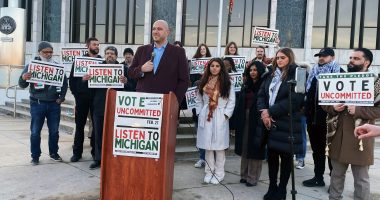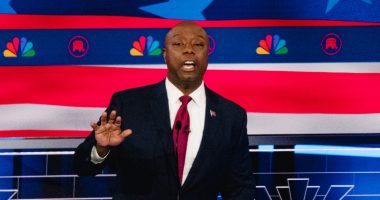President-elect Joe Biden tapped Rep. Marcia Fudge to lead the Department of Housing and Urban Development and former Iowa Gov. Tom Vilsack to serve as Agriculture Secretary, sources familiar with the decision told NBC News on Tuesday.
If confirmed, Fudge, 68, would be the first Black woman to lead the department in decades. Patricia R. Harris under President Jimmy Carter was the first. Fudge, who has been an advocate for fair labor practices, and civil and human rights, had long been a top contender for the position. However, Fudge, who serves on the House Committee on Agriculture, and her allies were pushing for Agriculture Secretary.
But Vilsack previously served as Agriculture Secretary under President Obama for eight years, which puts a confidant in Biden’s cabinet. Vilsack is also expected to bring a source of institutional knowledge to the post.
If confirmed, Vilsack, 69, would lead an agency at a time when American farmers have been hit hard by Trump’s trade war with China, but still largely remain loyal to the outgoing president, and as the poorest Americans are struggling with food security during the coronavirus pandemic.
Biden tapping Fudge, one of the most prominent Black women in politics, to a cabinet position comes as he is under pressure to name Black Americans to top posts. The president-elect has promised to make his Cabinet the most diverse in history.
Although the selection has not been formally announced or submitted to the senate, Fudge told NBC News on Tuesday that she would gladly accept the post.
“It is something that probably in my wildest dreams I would have never thought about, so if I can help this president in any way possible, I am more than happy to do it,” she said. “It is a great honor and a privilege to be a part of something so good.
She added, “If it were to happen, I would happily accept it.”
Fudge represents one of Ohio’s majority-minority districts, making it a safe seat to fill for Democrats. House Majority Whip Rep. James Clyburn, D-S.C., had supported Fudge for a top position and earlier Tuesday said he would “look for her to be in the Cabinet.”
Biden has already made several choices for Cabinet secretaries, including retired Army Gen. Lloyd Austin, who is Black, to be defense secretary; Xavier Becerra, who is Hispanic, for secretary of Health and Human Services; Alejandro Mayorkas, whose parents immigrated from Cuba to the U.S., for secretary of Homeland Security; and Janet Yellen, who would be the first woman to hold the job, for treasury secretary. Linda Thomas-Greenfield, a Black woman, would be Biden’s ambassador to the United Nations, a position that is often included in the Cabinet under Democratic presidents.
Fudge, who previously chaired the Congressional Black Caucus, has been one of the top Democratic leaders in the House. In 2018, when Democrats won back control of the House, she publicly considered challenging Rep. Nancy Pelosi, D-Calif., for speaker of the House before throwing her weight behind the California congresswoman.
The CBC said is a statement that they are “relieved knowing that the same determination” she brought to defending hungry families from cuts to the Supplemental Nutrition Assistance Program, know as SNAP, “will be brought to tackle one of the biggest looming threats facing Americans during this economic crisis: evictions and housing insecurity.”
Fudge was then made chair of a new subcommittee on elections, which has oversight of the country’s voting laws and the country’s election agencies, including the Federal Election Commission. Republicans eliminated the subcommittee in 2013.
But Fudge said in a statement at the time Pelosi had guaranteed her that Black women, a loyal Democratic constituency, would be at “the decision-making table” and that as chair of that new subcommittee, she will be able to work to uphold the Voting Rights Act.
CORRECTION (Dec. 8, 6:54 p.m. ET): An earlier version of this article incorrectly described Fudge’s nomination as precedent-setting. Fudge would not be the first Black woman to lead the Department of Housing and Urban Development; the first was Patricia R. Harris under President Carter.
Source: | This article originally belongs to Nbcnews.com












